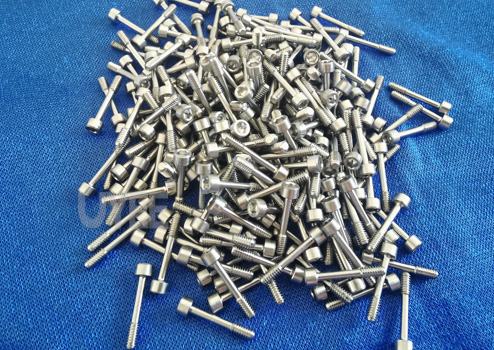How Many Do You Know the Types of Fasteners and Their Application?
The assembly of a wide variety of commonplace items requires various fasteners. If you’ve attempted any do-it-yourself tasks, you’ve probably already had occasion to employ multiple fasteners. We are enthusiastic about the potential role that excellent pins may play for both do-it-yourself individuals and experts. First, let’s take a minute to define fasteners, then we’ll go over some of the different kinds of pins, and finally, we’ll go over the many applications for fasteners.
What Is a Fastener?
First, let’s define what a fastener is. The goal of pins is to keep items together mechanically. Substances like glue may serve this purpose, but glue is not a form of fastener. Consequently, we must expand our definition. Hardware fasteners keep items together mechanically.
Typically, fasteners create a temporary connection. This rule holds except for rivets, which come under the category of fasteners yet generate permanent couplings. Buckles can reliably keep together things subjected to high-stress levels. This makes them an excellent option for both permanent and nonpermanent connections, giving adaptability for the sort of project you’re working on.
Different Types of Fasteners
You probably already have some idea of the wide variety of fasteners available if you’ve ever spent time in the section of a hardware shop dedicated to pins. Each of these several kinds of fasteners has its distinct category, and within that category, a wide variety of options are available. Let’s take a closer look at these main types of fasteners and see how they may be broken down even further.
-
Screws
The first kind of fastener that often springs to mind when someone mentions fasteners is a screw. One of the fasteners with the broadest range of pins is the screw fastener. Because of the threading on their shafts, they have reliable holding power, and in contrast to bolts, they don’t need anything else to keep them in place. After making a pilot hole with a drill in the material to be fastened with a screw, you will often use a screwdriver to secure the screw. The kinds and dimensions available for screws are rather extensive.

-
Nails
The usage of nails dates back to ancient times, and even now, they are a common component of most people’s homes. Nails are not used for fastening anything. Because a staple does not contain threading, it is simple to tell a screw from a nail. Although a pin may not have the same amount of gripping force as a screw, it does have a more muscular shear strength, which makes it the superior option for some situations.
It is easy to discover the appropriate kind of nail for work thanks to the fact that many different kinds of nails get their names from the tasks they are used for. In most cases, they have particular qualities that were tailor-made for dealing with the specific materials or applications in question.
-
Bolts, Nuts, and Washers
These two components keep components together by working in harmony with one another. The nut on the end of the bolt is used to secure it after it has been threaded between the two components that will be joined.
-
Anchors
Anchors are so named because they perform a role analogous to that of a boat’s anchor, designed to bury itself in the bottom of the ocean to prevent a ship from moving. They take up residence in the substrate and maintain the object’s position while it is attached. In most cases, these fasteners are used by humans to link one item to another material, such as drywall or concrete.
-
Rivets
A rivet is a kind of fastener used to form a solid and unbreakable junction. Rivets have an exceptionally long lifespan compared to different types of fasteners. You will need a specialized tool to widen the bottom and ensure that the rivet does not move.
Different Uses for Fasteners
This issue is relatively challenging to answer due to the practically endless benefits of fasteners. Homeowners will likely employ pins for various do-it-yourself projects and routine home duties. Industrial fasteners may be used for multiple tasks by workers in many sectors.
Picture Hanging:
Small fasteners are widespread in practically every space with wall-mounted decorations. They are used by homeowners and other designers for hanging photographs and other vital functions.
Building and construction:
A metal fastener may serve numerous tasks during building projects to guarantee that materials remain intact.
Furniture assembly:
Furniture manufacturers depend on fasteners when assembling and preparing items for sale to clients.
Cabinet installation:
When working on kitchen cabinet installation and restoration projects, home improvement professionals need a variety of fasteners.
Electronics manufacturing:
The creation of electrical gear, components, and commodities utilized in the office and at home relies heavily on fasteners.
Wall installation:
Anchors are used in conjunction with screws to secure drywall panels.
Roofing projects:
Roofing and framing nails are vital when building new roofs or performing maintenance and repairs on existing structures.
Flooring installation:
Businesses need flooring nails when installing certain goods in homes, offices, factories, warehouses, and commercial and retail locations.
The list might be endless. If you look at your house or place of work, you’ll see that several things are held together with fasteners.
Conclusion
Do you find it challenging to determine which kind of fasteners are appropriate for the applications or projects you are working on? When locating the proper pin for any task, our specialists can provide you with the information and direction you want. And even if we don’t have the component you’re looking for in stock; we can get it for you fast so that you have the least amount of downtime possible. Please contact us if you are in need of CNC machining services or custom titanium screws .
